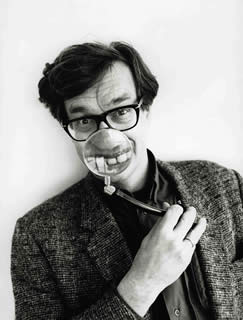|
|||
 |
|---|
Facts About Germany German History German Recipes |
Wim Wenders"I want to make personal films, not private films."
Wim Wenders began his professional career in 1971 with his next film, "The Goalkeepers Fear of the Penalty Kick", based on the novel of the same name by his friend Peter Handke. In 1971, together with fourteen other German filmmakers, he started a production and distribution cooperative called "Filmverlag der Autoren". That company became the nucleus of the “New German Cinema”. In 1977, he finished "The American Friend", his first international co-production. In 1978 Francis Ford Coppola invited him to the United States to shoot “Hammett” for Zoetrope Productions. In 1984 Wenders became a member of the Art Academy (Akademie der Künste) in Berlin. In 1987 his film “Wings of desire” ("Der Himmel über Berlin") was released, it won the prize for Best Director at the 1987 Cannes Film Festival. During this period he also published his first photo book, "Written in the West", which reflected his fascination with the American West. In 1989 Wim Wenders received an honorary doctor title from the Sorbonne University in Paris. His awards are Silver Bear Jury Prize (2000, “The Million Dollar Hotel”), Golden Palm (1984 “Paris”, “Texas”), Best Director Award (Cannes Film Festival, 1993 “Faraway, So Close!”) and Golden Lion (1982, “The State of Things”). "Sex and violence was never really my cup of tea; I was always more into sax and violins." Selected Filmography: Related articles: |
|
Powered by Website design company Alex-Designs.com


 Wim Wenders was born to create. He recognized it at high school in Oberhausen, where Wim began his studies in medicine and philosophy. Wenders decided to become a painter and moved to Paris, where he failed his entry test at the Art Academy. But this failure led him to the studio of Johnny Friedlander, an American artist, in Montparnasse. During this time, Wenders became fascinated with cinema. He understood, that his calling is to paint ‘alive’ pictures.
Wim Wenders was born to create. He recognized it at high school in Oberhausen, where Wim began his studies in medicine and philosophy. Wenders decided to become a painter and moved to Paris, where he failed his entry test at the Art Academy. But this failure led him to the studio of Johnny Friedlander, an American artist, in Montparnasse. During this time, Wenders became fascinated with cinema. He understood, that his calling is to paint ‘alive’ pictures.